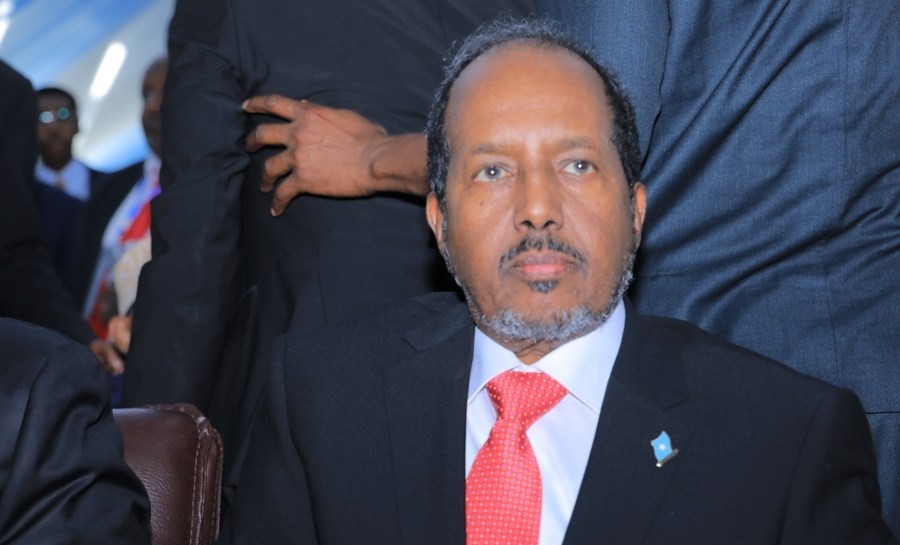Speaker of the Lower House, Sheikh Adan Mohamed Nur Madobe, announced a substantial majority in favour of amending the constitution….reports Asian Lite News
Somalia’s constitution underwent historical changes following a parliamentary vote on Saturday. Among the notable adjustments is the empowerment of the country’s president with the authority to appoint and dismiss a prime minister, Voice of Africa reported.
After weeks of intense deliberation, the bicameral federal parliament of Somalia ratified amendments to the initial four chapters of the nation’s provisional constitution.
During a joint session held in Mogadishu, legislators deliberated on each chapter individually before casting their votes on the comprehensive amendments proposed by the Independent Constitutional Review and Implementation Commission (ICRIC), according to Voice of Africa.
Speaker of the Lower House, Sheikh Adan Mohamed Nur Madobe, announced a substantial majority in favour of amending the constitution.
“A total of 212 members of the Lower House and 42 members of the Upper House supported the amendments, with no abstentions or rejections. Therefore, the amendment has been approved with a unanimous vote,” declared Madobe.
Hussein Idow, chairperson of the Constitutional Review Committee, elucidated that three provisions concerning religion in the draft would undergo further scrutiny.
“The decision to postpone the religion provisions aims to ensure their alignment with the principles and values cherished by the Somali people,” Idow remarked.
“The provisional constitution has been under review for nearly a decade. Since 2012, three parliaments have attempted to amend it, but significant progress in finalising the review was made in late 2023. We extend our gratitude to the 11th parliament of Somalia for boldly undertaking these amendments,” added Idow.
A pivotal amendment in the ratified draft delineates the establishment of a president and a prime minister for Somalia. Under this provision, the president is granted the authority to appoint and remove the prime minister from office, thus replacing the previous requirement for the prime minister to secure a vote of confidence from parliament, thereby introducing more flexibility in the executive branch.
Somalia’s political landscape has been marked by discord between presidents and prime ministers, stemming from a complex interplay of historical, regional, clan-based, and ideological factors.
Since the inception of the presidential office in 1960, Somalia has witnessed nine official presidents. The recent four presidents, including the incumbent in his first term, have exercised the prerogative to dismiss a prime minister with parliamentary support.
Central to these disputes is the distribution of power and resources among various clans and regions within Somalia.
Constitutional experts assert that the perennial power struggles between the top offices are fundamentally rooted in the constitutional delineation of their roles.
Among the proposed amendments was a provision advocating for a presidential system where the president assumes both the roles of head of state and head of government, with ceremonial duties delegated to a vice president. However, this provision was omitted during parliamentary review.
The amended constitution stipulates a five-year term of office for government constitutional bodies and refers to regional state presidents as leaders. Additionally, it envisions the presence of three political parties, fostering a multi-party system.
Nevertheless, some political stakeholders, including former Somali Presidents Mohamed Abdullahi Farmaajo and Sharif Sheikh Ahmed, along with leaders from the Puntland state, vehemently opposed this amendment, citing concerns regarding the lack of consensus among political actors.
In a separate statement issued on Saturday, a coalition of influential politicians, including former prime ministers Hassan Ali Khaire and Omar Abdirashid Ali Sharmarke, criticised President Hassan Sheikh Mohamud for his role in steering the approval of the amendment.
“The president has led the nation down a perilous path, plunging it into turmoil and political uncertainty, jeopardising state-building efforts by pushing for the parliament’s approval of controversial provisions in the constitution,” the statement lamented, as reported by Voice of Africa.
In February, the ICRIC submitted proposed amendments to parliament, focusing on the initial four chapters. These amendments encompassed the age of maturity for girls and the criminalisation of female genital mutilation. The ratified amendments establish the age of maturity at 15 and the age of responsibility at 18, advocating for juvenile justice standards to safeguard individuals under 18.
However, rights groups caution that such provisions risk perpetuating existing traditional norms, potentially subjecting girls to marriage at the age of 15.
Human Rights Watch, in a statement issued on Friday, warned that the current constitutional proposal poses a threat to children, particularly girls.
“It would place girls, in particular, at a greater risk of child marriage, impacting their health, including reproductive health, access to education, and protection from other forms of abuse,” the organisation asserted.
“Somalia’s parliament must resist efforts to dilute constitutional protections for children, especially girls,” urged Laetitia Bader, deputy Africa director at Human Rights Watch. “Donors to Somalia should exert pressure on the government to fulfill its commitments to uphold international human rights standards,” Voice of Africa reported. (ANI)

Leave a Reply